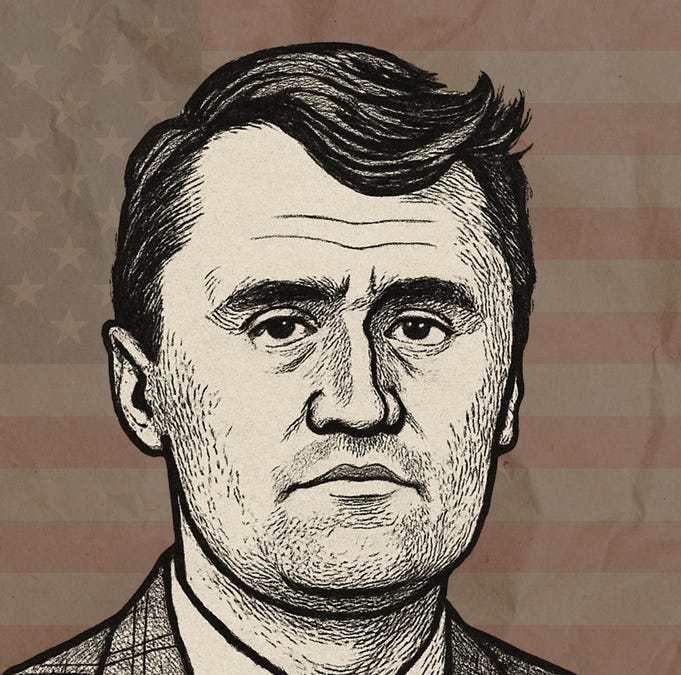Charlie Kirk’s assassination has become a kind of cultural Rorschach test. Many project their own fears, hopes, and frustrations onto his passing. For some, he was primarily a partisan fighter. He then triggers reactions based on their own attitudes toward MAGA.
Peggy Noonan reflected a fuller appreciation of Kirk, noting: “Mainstream media has understandably presented him as a political person, but he was almost as much an evangelical one, a Christian unembarrassed to talk about his faith’s importance to him.”
Another Wall Street Journal voice widened the conversation. Allysia Finley asked what drives young men into destructive spirals. Her essay “America’s Lost Boys” described: “ Unmoored, lonely, drifting into emptiness. Too many men spend hours gaming, trolling, smoking, and scrolling. Not working, not building, not starting families or lasting lives.”
This subject was Kirk’s obsession. When he brought it up, he refused to simply flatter his audience’s prejudices or grievances. He challenged them—an evangelist in tone, not a campaign consultant. He told men to grow up and offered no apology.
His message was sharp, simple, and relentlessly consistent. Society no longer values the things that matter most. Loving God. Loving others. Raising children. Leaving a real legacy. He observed that culture celebrates instant gratification and shallow self-indulgence.
Kirk argued that civilizations were built on discipline and delay. On sacrifice, responsibility, and effort sustained over time. Today’s culture urges men to do the exact opposite. Smoke, drink, scroll, bet, consume, repeat—then deal with regrets.
And yet the data backs up his darker assessment. Men between 20 and 34 are drifting in alarming numbers. Workforce participation among young men has dropped steadily for decades. Too many young men are unmoored, undirected, uninspired, and underemployed.
Kirk went directly at this cultural crisis with urgency. He urged men to stop wasting their lives on screens. To quit porn, ditch gaming, and leave shallow parties behind. Not because pleasure itself was sinful, but because it was empty. Empty of growth, responsibility, meaning, or any enduring satisfaction.
His alternative was blunt but strangely hopeful. Hit the gym, train your body. Ground yourself in something larger than ego. Build friendships that actually build you in return. Seek women who want men with a real plan. Not hookups, but partners who will protect, provide, and lead. In his shorthand: raise your game.
Kirk’s appeal wasn’t rooted in nostalgia for the past. It was a call for men to mature right now. What made his message stick was his distinctive tone. He wasn’t a scold or a condescending father figure. He was upbeat, even optimistic, about men’s potential for growth.
That makes his death all the more tragic. We didn’t just lose a political actor with strong views. We lost a cultural voice that demanded men grow up. A voice unafraid to speak uncomfortable truths in public. A voice capable of piercing noise without becoming needlessly harsh.
His critics dismissed him as reactionary, rigid, even anti-modern. But that was always a misreading of his intent. He wasn’t anti-freedom; he was anti-apathy. He wasn’t anti-pleasure; he was anti-drift. He was against wasting your one life on nothing.
Young people today face record levels of anxiety and depression. Marriage and childbearing rates hover near historic lows. His prescription was deceptively simple but difficult to live. Return to discipline. Return to purpose. Return to God, family, and community—not as slogans but practices. He offered not politics but discipleship, a call to follow. He demanded that men become the kind of leaders worth following.
One of his final charges to men was clear. Surround yourself with people who lift you up, not down. Families, children, responsibilities—they require strength, discipline, and clarity. No app can teach that, and no algorithm can supply it. It has to be lived, daily, through discipline and faith. Among the tragedies of Kirk’s death is this lost voice. The voice urging men to grow, to rise, to lead. He told them the truth without seeming preachy. That is rare, and now it is gone.
His message to men, though, remains: Raise your game. Live for purpose, not pleasure. Be strong enough to lead, humble enough to serve. That was his inheritance to young men everywhere. The burden now falls to others to carry it forward.


